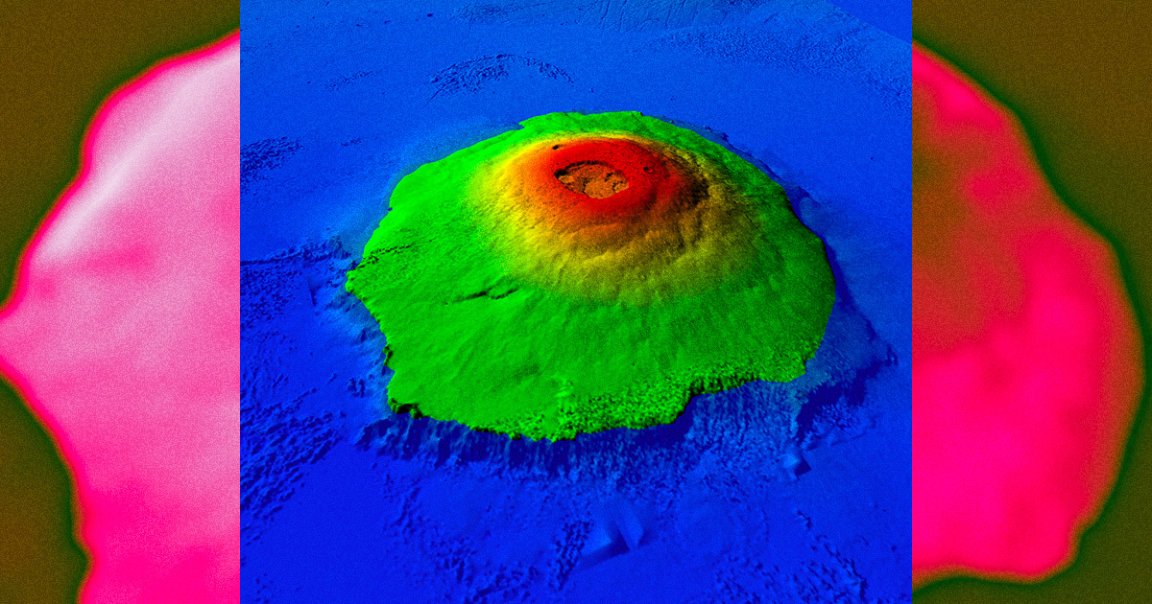
Island Paradise
Scientists are positing that Mars’ giant Olympus Mons volcano, which is roughly the size of France, may once have been an island — a finding that could further the search for water and even signs of ancient life on the Red Planet.
New research undertaken by France’s National Centre for Scientific Research (CNRS) suggests that the epic volcano shares “morphological similarities with active volcanic islands on Earth,” the paper’s authors wrote in the journal Earth and Planetary Science Letters.
Known for being both the largest volcano and highest mountain in our Solar System with its 16-mile summit — which is, as Space.com noted earlier this year, a whopping three times higher than Mt. Everest here on Earth — Olympus Mons’ creation has long posed an interplanetary mystery.
Volcano Hybrid
In the study, French scientists suggest that the ginormous and shockingly flat volcanic mountain was “most likely formed by lava flowing into liquid water,” which is, for those Earth science buffs out there, the same way islands are formed here on our pale blue dot. If there was once an ocean surrounding it, it would have been like an island here on Earth, though of course, that hypothesized ocean has apparently since dried up.
The scientists behind the paper added that they also believe another of Mars’ volcanoes, the Alba Mons mountain located more than 1,000 miles away, lends credence to their Martian ocean theory as well.
Both American and Chinese rovers have found evidence of water on Mars — a huge leap forward in the search for life on the Red Planet and, as many scientists believe, a jarring look into one of Earth’s potential futures.
As always, more study is necessary to figure out what’s up with this colossal Martian mountain and the paper’s authors note that further research could help indicate how old Olympus Mons is, which could in turn lead to a better understanding of what happened to Mars’ water — and, perhaps, any life it sustained.
More on Mars research: A Majority of Americans Don’t Care About Mars, Want NASA to Defend Against Killer Asteroids